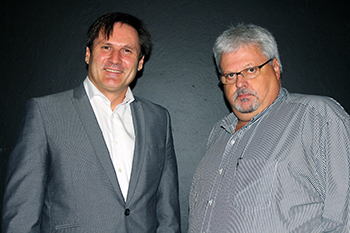Latest News Archive
Please select Category, Year, and then Month to display items
18 November 2024
|
Story Jacques Maritz
|
Photo Supplied
 Muhammad Cassim, a second-year student in the Department of Engineering Sciences in the Faculty of Natural and Agricultural Sciences.
Muhammad Cassim, a second-year student in the Department of Engineering Sciences in the Faculty of Natural and Agricultural Sciences.
Muhammad Cassim, a second-year student in the Department of Engineering Sciences in the Faculty of Natural and Agricultural Sciences at the University of the Free State, will participate in the winter university project in Pskov, Russia, from 25 November to 9 December 2024.
The winter school aims to strengthen relationships among young engineers and deepen international interaction via skills improvement, joint projects, and social cohesion. The programme boasts a densely packed education block, project block, and cultural block.
Cassim is part of the UFS Grid Related Research Group and actively participates in research centred on complexity science. He intends to complete his BSc Physics degree with Engineering subjects and progress towards postgraduate studies in the UFS Department of Physics.
He is currently working on verifying experimental developments in the field of synchronisation in complex networks. While he has already completed this high-performance computing training in his first year under the leadership of Albert van Eck (Director, UFS E-research), he is looking forward to the masterclasses in holographic modelling, deep learning, direct laser deposition, and database. Closely resembling his current research, he will have the opportunity to gain more experience in the use of set theory and graph theory in solving digital information processing problems.
For more information about international scholarships for study abroad opportunities, contact Mbali Moiketsi in the Office for International Affairs.
Cassim’s student profile is the culmination of the department’s strategy to produce young applied scientists who are subjected to the culture of research during their undergraduate study and could articulate with ease to other departments for postgraduate studies. The department aims to align with the UFS’ Vision 130 by producing competitive students who can operate in the postgraduate paradigm with the digital themes of veterinary science and ecological engineering science.
Internationally-renowned futurist proposes innovation in corporate management
2016-05-10

Pieter Geldenhuys, guest speaker at the seminar, who mapped the future of corporate management (left) with Dr Vic Coetzee, Senior Director: Information and Communication Technology Services at the UFS (right).
Photo: Hatsu Mphatsoe
|
Humans need to adapt their thinking to the world’s changes. This is Pieter Geldenhuys’s conviction.
The Information and Communication Technology Services (ICT) at the University of the Free State hosted a seminar on 22 April 2016 at the Bloemfontein Campus. Geldenhuys, the Director of the Institute for Technology Strategy and Innovation at North-West University and internationally-renowned futurist, presented his views on technology, innovation, and corporate management on this occasion.
Geldenhuys, a well- known speaker, academic, and futurist, is in the business of identifying opportunities in the changing technological and social landscape with the aim of assisting companies to prepare for the future, while being an active agent in defining it. Lately, he has been exploring the concept of a new kind of management science, which he believes is a prerequisite for institutions such as ours.
This management science incorporates physics in improving corporate management. “We have an unbelievable grasp of the world of physics,” he said, suggesting that we use our knowledge of nature to capitalise on individual and collective strengths within institutions.
He said that minor changes can change one’s future or that of an organisation completely. He even went as far as to state that the culture of an organisation is the one that determines how well you do. Relating to the adaption of organisations in a constantly changing and dynamic environment, Geldenhuys advised that, “when faced with disruption, don’t retaliate; accept.”
By making use of different tools, such as technology aw well as social and business trends, Geldenhuys is adamant that corporations and institutions will adapt easily to the world’s complex systems.